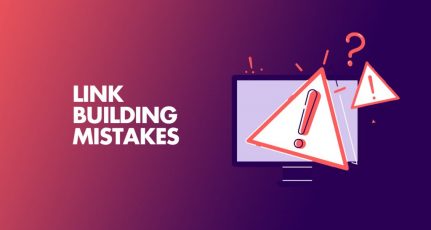
A “backlink” is one of the most used words in the world of search engine optimization (SEO).
Many bloggers who have only recently started a blog or a website often struggle to understand what the term “backlink” means.
In this post, I hope to offer you an understanding of what backlinks are, why they are essential to SEO, and why they are important for your online success. You’ll also learn how to analyze the backlinks of your competitors, and how to acquire them for your site.
Let’s get started…
Backlinks are incoming links to a webpage.
When a webpage links to any other page, it’s called a backlink. In the past, backlinks were the major metric for the ranking of a webpage. A page with a lot of backlinks tended to rank higher on all major search engines, including Google. This is still true to a large extent.
Must-know Backlinks related terms
- Link Juice: When a webpage links to any of your articles or your website’s homepage, it passes “link juice”. This link juice helps with the ranking of the article, and also improves the domain authority. As a blogger, you can stop passing link juice by using a no-follow tag.
- No-Follow Link: When a website links to another website, but the link has a no-follow tag, that link does not pass link juice. No-follow links are not useful concerning the ranking of a page as they do not contribute anything. In general, a webmaster uses the no-follow tag when he/she is linking out to an unreliable site.
- Do-Follow Link: By default, all the links that you add to a blog post are do-follow links and these pass link juice.
- Linking Root Domains: This refers to the number of backlinks coming into your website from a unique domain. Even if a website has linked to your website ten times, it will only be considered as one linked root domain.
- Low-Quality Links: Low-quality links are links that come from harvested sites, automated sites, spam sites, or even porn sites. Such links do far more harm than good. This is one reason you should be careful when buying backlinks.
- Internal Links: Links that are going from one page to another within the same domain are called internal links. The process itself is referred to as internal linking or interlinking.
- Anchor Text: Text that is used for hyperlinks is called anchor text. Anchor text backlinks work great when you are trying to rank for particular keywords.
Benefits of backlinks in SEO:

Before I talk about the advantages of backlinks, you need to know that much has changed concerning backlinks in the past couple of years.
There was a time when even low-quality links helped in ranking a site. But ever since Google rolled out its Penguin algorithm, the whole landscape of backlinking has changed.
It is important to have backlinks from quality sites, and those backlinks should be contextual. If, for example, you have a site about fish, and you are creating links from other niche sites about monkeys, these links will be of no use. Your goal should be to get links from authoritative and relevant sites.
Now let’s take a look at why it is important for you to create backlinks to your site:
1. Backlinks Improves Organic Ranking
Backlinks help in getting better search engine rankings.
Important note: “SERP” means search engine results page. This screenshot is merely reflecting what people see in Google.
Here’s an example.
Take the topic “SEO Backlinks”.
If I enter this search term into SEMRush SERP analysis (a keyword research tool), I can see that most of the high-ranking pages have tons of backlinks:

If your content is getting links from other sites, that content will naturally start to rank higher in the search results. If it isn’t, then you need to get proactive and build them.
Your goal should be to create links to individual posts/pages along with those leading to your homepage.
2. Faster Indexing
Search engine bots discover new webpages by following backlinks from existing webpages. Only when they’ve discovered your site can they crawl your site effectively.
It will be more difficult for search engine bots to find your site if you do not have any backlinks. Especially for a new website, it is important to get backlinks as they help in the faster discovery and indexing of your site.
3. Referral Traffic
One of the major benefits of backlinks is that they help get referral traffic. Basically, a person who is reading a post may click on links in the post to find out more about the topic at hand.
Since people click on links voluntarily, they’re usually more targeted and are less likely to leave the page fast (aka a low bounce rate).
Usually, referral traffic is targeted and has a low bounce rate.
How to start getting backlinks:
So now you understand what the term “backlink” means as it relates to SEO and why they’re important. Let’s now learn a few simple techniques for acquiring new backlinks:
One important fact that you need to keep in mind about backlink SEO is that it is not the number of backlinks which matters, but rather the quality of backlinks.
So here’s the question:
What are some of the ways to get quality backlinks for your blog?
- Write awesome articles
- Use Broken link building method
- Replicating your competitors’ backlinks
- Create cornerstone articles (Piller articles)
- Start guest blogging
- Submit to web directories
Read: 101 Ways To Generate Backlinks
1. Write awesome articles
If you want people to link to you, you need to give them a reason. And the best reason is an awesome article.
If your content is helpful and enjoyable, people will be happy to link to it.
How do you create an awesome article?
Here are some tips to get you started:
- Solve the problem. Most people read content because they’re looking for a solution. Make sure you articulate the exact problem and teach them how to fix it.
- Make your content easy to read. Write it in short, simple sentences. Make the article look less chunky by adding formatting, headings, images and other multimedia.
- Have a unique angle. There’s so much content on the Internet today. How will your article stand out?
- Build authority into the article. People want to learn from people with authority on that topic. Also, focus on building topical authority.
Over the years, we’ve published plenty of articles on this blog that will help you to create great articles in no time:
- SEO Copywriting Tips (Write SEO Optimized content)
- On Page SEO Techniques (This is highly recommended)
- Five Writing Tips To Connect With Readers At A Deeper Level
Once you’ve published your awesome post, it’s time to send some outreach emails. A good group of people to reach out to are those who have published articles on the same topic. Since they’ve written on that topic before, there is a higher probability that they’ll be interested in seeing your post.
To find these people, simply enter the topic of your article (remember to try variations!) into Google. Collect the list of articles that appear in the SERPs.
Alternatively, you can use a tool like BuzzSumo.

Enter the topic into Content Analyzer, do some filtering (like “English-only”) and export the list.
Important note: Such articles are based on proper research and practical examples.
2. Start guest blogging
Guest blogging is a strategy where you write a post for other people’s blogs, instead of your own.
How does this work in terms of link building?
In a nutshell: in exchange for a free article, the blog owner will usually allow 1-2 links back to your site within the post.
One big challenge with guest blogging is finding sites to guest blog for.
To increase your chances of being accepted, you can look for sites that are already accepting guest posts. These sites typically have a page calling for contributors, like a “Write For Us” or “Contribute” page. To find these sites, you can use Google’s advanced search operators.
Some search operators you can use:
- [your_topic] “write for us”
- [your_topic] “become an author”
- [your_topic] “guest post”
- [your_topic] “guest article”
- [your_topic] inurl:contribute
From there, simply follow the instructions and submit a pitch.
Another route you can take is to look for guest blogging opportunities in Ahrefs’ Content Explorer.
The reason is this: if a website has written about a topic before, they clearly have an interest in it. Thus, they may be willing to accept a guest post about that topic, even if they don’t have a “write for us” page.
To begin, enter any word/phrase in your niche.
Check the “one article per domain” box to get a list of unique domains you can potentially write for. You can also add a few more filters to narrow the list so you can pitch blogs you’re comfortable writing for.

Some of these sites may not have an obvious “Write for us” page. Nevertheless, most blogs will accept a guest post if your pitch or topic is good enough.
One way to find good topics to pitch is to note common themes or topics that are already popular on their blog.
Most blogs showcase their best articles on their site.

Here is a video that helps you understand more about finding opportunities:
3. Replicate your competitors’ backlinks
Your site may be new, but your competitors aren’t. This means two things:
- They’ve likely gotten plenty of backlinks
- They’re done some link building of their own (so they can rank better)
You can use this to your advantage. Find out how they’ve been acquiring their links, and replicate them.
To do this, you’ll have to use a tool in SEMRush called backlink Gap.
This handy tool tells you who’s linking to multiple competitors, but not to you.

In the below screenshot, you can see how clearly it shows the websites which are linking to all the other sites that are linking to my closest competitors. What I’ll do is to analyze the results and figure out why they linked to my competitors, but not to me.

Add your competitors to the tool, and click “find prospect”.
Then, I’ll send an email and see if I can get those links! I will share the email outreach technique in the future articles. You can subscribe to our newsletter to stay get notified when we publish the guide.
4. Broken link building
The Web is constantly evolving. Pages change, move or get deleted all the time. Broken links are links to pages that no longer exist.
Nobody likes that. Webmasters and searchers hate broken links because they contribute to poor user experience.
But, they still exist because webmasters are busy. It takes a lot of effort to continuously rid your site of broken links.
This strategy takes advantage of that. The concept is simple:
- You find a broken link
- You recreate the dead content
- You reach out to people linking to that dead content and ask them to link to your recreated version.
The most important part of this strategy is finding the right “broken” content to recreate and pitch. To do this, you’ll need a tool that allows you to analyze backlinks.
Enter the domain of an authoritative, competing site into Ahrefs’ Site Explorer. Then, go to the Best by links report, and filter by “HTTP 404 not found”.

As you can see, the 2nd page of this screenshot is dead, but previously had 113 dofollow backlinks linking to it. That’s a great opportunity!
The Wayback Machine tells me it used to be a post about the differences among metaphors, similes, and analogies.
Now all you have to do is to recreate this content and tell all 113 people to link to you instead.
5. Submit to web directories
Submitting your blog to web directories is another easy way to get backlinks.
With that said, this method is not very popular these days because finding a legal web directory is not easy. You must especially avoid those web directories that ask you to create a backlink to their website to get your website into their directory.
- Read: Exclusive List of Websites & Directories To Submit Your Blog
- 131+ Manually Verified Free Blog Directories To Submit Your Blog
Also important: If you are using any automatic direct submission tactics, stop doing so right away. Automatic website submissions will cause your blog to appear as spam, and it can cost you a lot in terms of your domain authority or even the complete removal of your blog from search engines.
Backlinks in SEO FAQs
When one website links to another, that link is known as a backlink. For example, if ShoutMeLoud includes a hyperlink directing to a page on Wikipedia, that link from ShoutMeLoud to Wikipedia is a backlink for Wikipedia.
The number of backlinks needed for SEO success varies. Quality matters more than quantity when it comes to backlinks. Having a few high-quality backlinks from authoritative and relevant sites can be more beneficial than many low-quality backlinks. However, a backlink analysis always reveals how many backlinks you should get for your page to outrank the competitor. This is not always accurate, but it helps.
Bad backlinks or low-quality or toxic backlinks, come from unreliable, spammy, or irrelevant websites. These links can harm your site’s SEO by negatively impacting the website’s credibility and ranking on search engines.
I hope this article will help you understand the basics of backlinks in SEO, and why you should start working on getting backlinks for your blog.
Do you currently work on getting backlinks for your blog? Tell us about your experiences in the comments section below.
Here are a few hand-picked guides for you to read next:
If you find the information in this post useful, please share it with your friends and colleagues on Facebook, Twitter, and LinkedIn!








Thanks for the article. It is really a nice article. Till now i find building back-links for my website a hard task. It will definitely help us in building back-links. Keep writing and happy blogging.
I have found it incredibly difficult to get quality backlinks. I have submitted to many directories, but they often don’t pan out. Anyone have any suggestions for directory lists?
Thanks for this article Harsh.Without this article I was going to miss one of the most important part of seo which is backlink.I will try all these methods to create backlink for my site.Thanks once again 🙂
Hi Harsh
Very informative article. I am a new blogger and learning a lot from you. I have an Amazon Affiliate website . I have a question. Should I tag my affiliate links “nofollow”.
Hey Abhay,
Google handles affiliate links without any issue, as they know about majority of affiliate networks, but if you are still worried, you can add a nofollow link to such affiliate links. Read more here: https://www.shoutmeloud.com/google-affiliate-links-seo.html
Hi Harish
Very well explained, can you suggest a few sites and forums to get some quality back links.
Thanks in advance
Thank you so much. Wow! I’m alway getting some really valuable tips from you. I really need to improve my content, like really, lol. Thanks again Agrawal.
Hi Harsh,
Thanks for your post, it really helps people who wants to learn about this. But I have some questions. I’ve read that some paid backlinks sites are great for creating quality links. As you say, this is wrong.
Can you explain me why? thanks in advance
Hello,
Thanks for the post. But how do you define another website to get backlinks from as “authoritative” and “quality”? Does it relate to Alexa.com rank or something else?
Im looking for places to get my article posted but I have doubts about certain other websites (forums, news sections, etc.)
I read an article that say, you do not need to worry about backlink if you have a great content, well that was a lie, i try it for my new blog, he do not work for me, i need to generate backlink for my post to get index on google. thanks for this stuff.
Thanks for this awesome and juicy post, I really did enjoy reading through and I’m pretty sure that these tips you highlighted would help me grow my new blog. But I would love to learn more from you, I’m not satisfied.
As a new blogger , i was quite unfamiliar with seo (Backlinks) and i must say that each and every post in SEO category is helpful.
I recommend all new blogger’s to skim through the seo category post in shoutmeloud,
The shoutmeloud community has done a great job and i have noticed that old articles get updated regularly so the mentioned content is never old .
I personally follow harsh agarwal and his guides on seo and blogging.
thank you for your post, help me a lot to understand backlinks as a newbie to blog!
excellent explanations and point! I have really learned a lot from you and I must confess that I have been inspired and will start to implement immediately. Looking forward to reading other brilliant post from you. Thanks
Hi. Such a great article. I’m actually learning a lot. I just want to ask about web directories submission. What do you mean by that? Are there specific sites you are referring to, or just blog communities and groups? Thanks! =)
Thanks for this awesome article. I got clarity regarding backlinks. Specially 101 ways to get backlinks.
I will surely try some of them.
Thanks Harsh for the clear insights. Interesting and learned a lot about backlinks…
Wow, really appreciate the hard work you put in to write these articles. Keep it up.
Hey Harsh!
Thank for this post. Clearly there’s a lot more I need to learn about SEO & Backlinks.
Question for you: Is there any backlink value in commenting on no-follow blogs? Also, is there a way to tell if a blog is no-follow?
Hey shawn,
You can install No follow extension in the Google Chrome or just Right-click on the document you wish to inspect.Click view page source.Press ctrl+f to open a search box. Type in “nofollow” and press enter. If you can see rel=”nofollow”, that is a nofollow link.
Well, a no follow link does not pass link juice, so you will not get any backlink. However, a no-follow link has indirect benefits to your site, like referral traffic which may then convert into a lead. Your brand becomes more visible and you might get few readers from that link. So, it is always a good idea to comment on blogs which have a huge traffic even though they do not provide any backlink.
Thanks for sharing. Writing awesome quality articles would naturally get me backlinks in the long run. I’ve a habit of appreciating the effort that writers take for making an amazing article, just got that this can benefit me too 🙂
Good morning Harsh!
I came across this article when researching SEO and what on earth a backlink was. Yes, silly I know. I should of known what a backlink is since i write my own blog? lol but I didn’t. Thanks to your article, I now know what that stat means in my blog traffic info. Sorry, I use layman terms.
So I realised I have been back linking without knowing I am at the time, I just hope for the best. If people want to visit my blog, thats fantastic, and if they don’t, well they are missing out! Hehe, each to their own. Thanks again 🙂 love Loz from AUS xo